
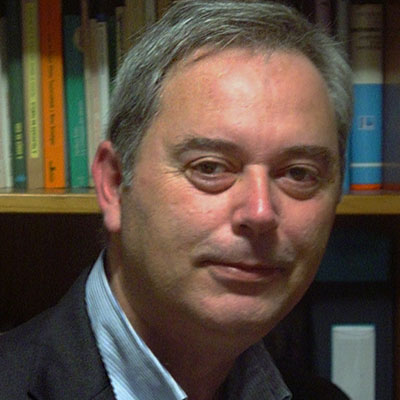
Albertino has a master’s degree in Sociology from the University of Paris V-Sorbonne (1981) and a doctorate in Sociology from Universidade do Minho (1994), where he aggregated in the Sociology disciplinary group (2005). He has been teaching, since 1982, subjects in the field of social sciences methodology and cultural sociology, lifestyle and the arts. Coordinator of the post-graduation courses at Institute of Social Sciences, a member of the founding committee of Casa Museu of Monção and researcher at the Studies Center Communication and Society.
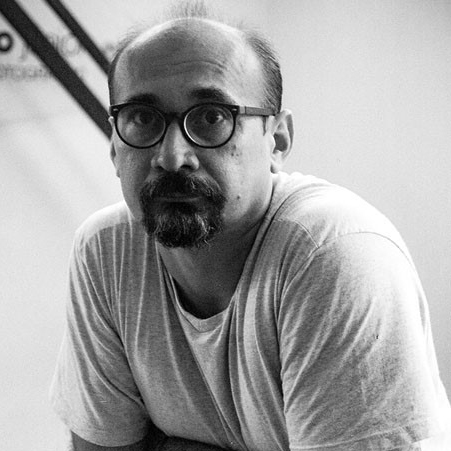
PhD in Anthropology and audiovisual filmmaker, he is the Deputy Coordinator of the Research Group on Visual Anthropology and Image (VISAGEM) at the Federal University of Pará, Brazil. He is the director of the International Ethnographic Film Festival of Pará, the Amazon Cinema and Anthropology Colloquium, and the Visual Anthropology Meeting of Amazonian America. He is also an advisor and member of the Visual Anthropology Committee (CAV) of the Brazilian Anthropology Association (2025-2026). Winner of the 2018 Art and Culture Award from PROEX/UFPA, his films have received awards at the International Ethnographic Film Festival of Recife, the Açaí Film Festival, and the International Indigenous Film Festival of the Amazon.
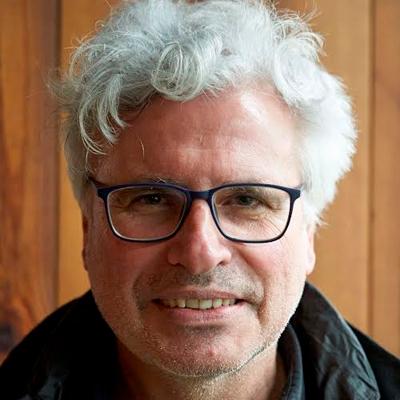
Professor at the Faculty of Communication Sciences at Universidad Rey Juan Carlos. Winner of the International Aurélio da Paz dos Reis Award (Portugal, 2016). He works on various audiovisual and cinematic projects as a director, producer, and screenwriter. His work includes the feature documentary Al escuchar el viento (2013), selected for Seminci 2013; he was a co-producer of the transmedia documentary project La primavera Rosa (nominated for the 2018 Goya Awards with La primavera rosa in Mexico); and director, producer, and screenwriter for the documentary short films Espejismos (2022), Ausencias (2023), and La ciudad se mueve (2024). His latest feature documentary, José Luis Espinosa, el espía (2022), won the World Premiere Award and the Avanca Competition at the International Film Festival of Avanca, among other awards and selections.
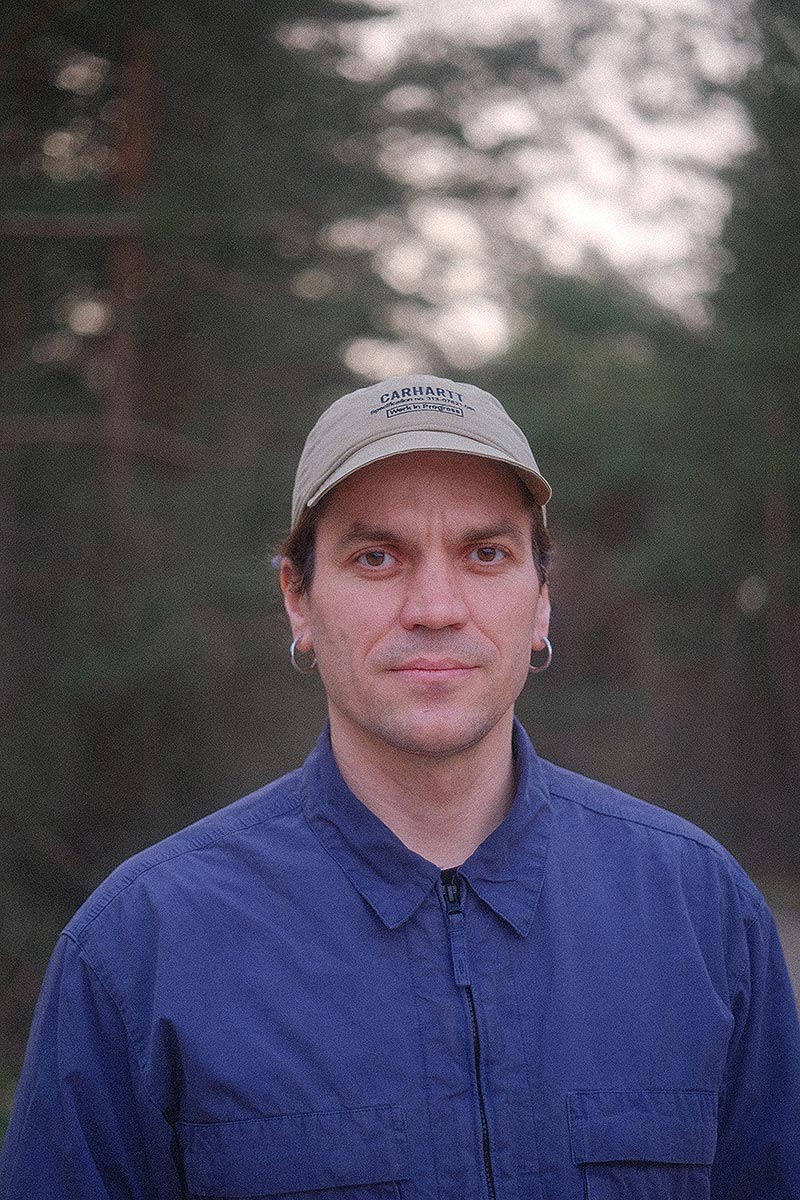
Aliaksandr Tsymbaliuk is 34 years old, born and raised in Pinsk, Belarus. At the age of 24 he was enrolled in Lodz Film School to cinematographer department and successfully graduated. During and after his studies he took part in different projects, both in fiction and documentary films. But as it turned out in the process his inner preference was for documentary films and he has decided to focus on developing hisself as a documentary cinematographer and director. His last major project as a one of cinematographers was “Queendom" dir. Agnia Galdanova which premiered at SXSW 2023 and won prises on CPHDOX Festival, Zurich Film Festival, Athens International Film Festival , Munich Film Festival, L.A. Outfest.
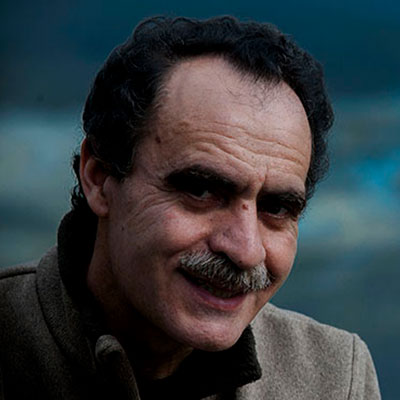
Álvaro António Gomes Domingues (Melgaço, 1959) is a geographer, PhD in Human Geography and associate professor at the Faculty of Architecture of the University of Porto. Teaching activity: Teacher of the integrated master's and doctoral program in Architecture and PhD Course at FAUP; Member of the Scientific Council at FAUP; Professor of the Master’s degree "Project of the Urban Environment" (FAUP/FEUP); Teacher of PhD Course of Architecture of the University of Coimbra.; Professor of the Summer Courses at the Serralves Foundation; Visiting professor at the Federal University of Rio de Janeiro; Visiting Professor at the University of Granada. Regularly collaborates with other universities, foundations, Público newspaper, cultural and professional associations, whilst developing a regular activity as a lecturer. Research fields: Urban Geography, Urban Planning, Landscape, Territory, Cultural Policy. His recent books include: Vida no Campo (ed. Dafne, Porto, 2012), A Rua da Estrada (ed.Dafne, Porto, 2010) and Políticas Urbanas II (Calouste Gulbenkian Foundation, Lisbon, 2012 with Nuno Portas and João Cabral).
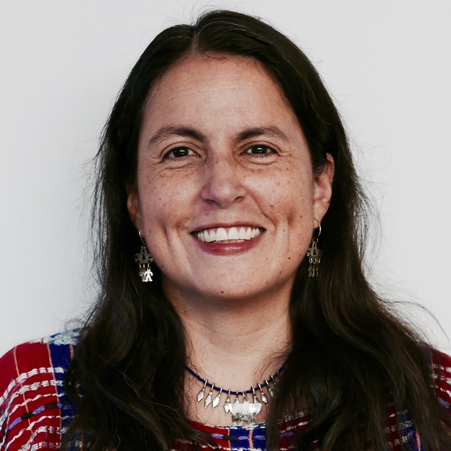
Amália Córdova is the Supervising Curator of World Cultures and the Chair of Cultural Research and Education. A transdisciplinary academic and professor, she has dedicated most of her professional life to museums and educational spaces that engage with Indigenous knowledge and media, consistently integrating practice and theory. She is particularly concerned with issues of voice and representation. Amália has directed and produced several documentaries, most of which were collectively directed, and co-produced a web series titled Urban Indians. She brings a collaborative, transnational, and multi-sectoral approach to curatorial work, film production, and teaching. She has taught visual arts, art history, movement arts, and film, with a focus on Latin American, Indigenous, community-based, ethnic, and documentary cinema and video.
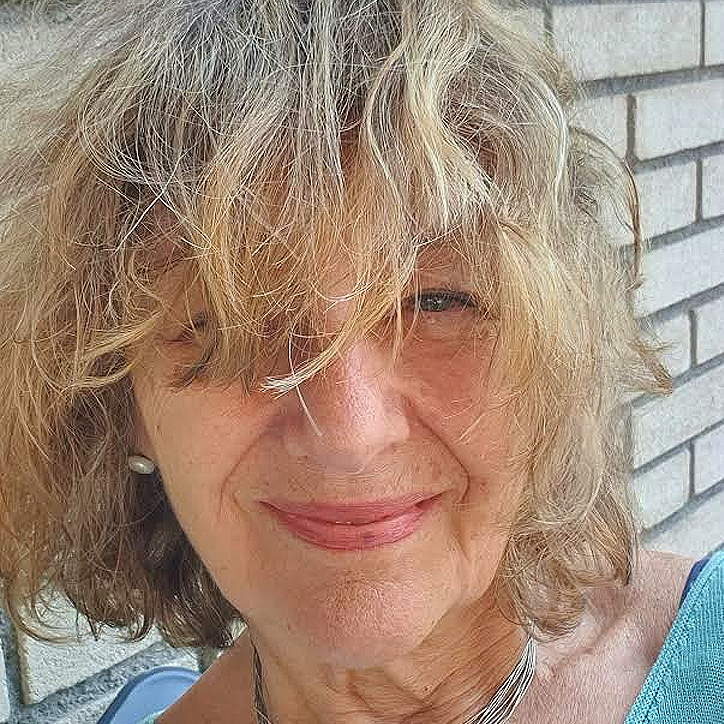
Barbara Lorey de Lacharrière is a cultural journalist and film critic who has written for leading German and Swiss newspapers and magazines for over two decades. Alongside her writing, she has curated photography exhibitions across Europe and the United States, served as artistic director of the East-West Film Festival, Russia, and worked as a programming consultant for international film festivals. As Head of Department at FIPRESCI, in charge of promoting the FIPRESCI Award, she has been curating film programs worldwide since 2010. In response to the challenges of the COVID pandemic, she founded the festival Terres d’Ici, Terres d’Ailleurs in 2021 through her company Alizarine, films, arts & events — bringing cinema to a small rural village in Southwest France. In 2023, she joined the programming teams of the Cinéma Héritage International Film Festival in Paris and the Festival du Cinéma Méditerranéen in Tetouan, Morocco. She has served on the juries of a great number of major international film festivals across Europe (including Cannes, Berlin, Karlovy Vary, and Venice), as well as in the Maghreb, the Middle East, the USA, Latin America, Australia, India, and Africa. With a strong academic background in Germany and France, she is also a certified clinical psychologist and holds a postgraduate diploma in sociology from the Sorbonne and EHESS (École des Hautes Études en Sciences Sociales) in Paris.
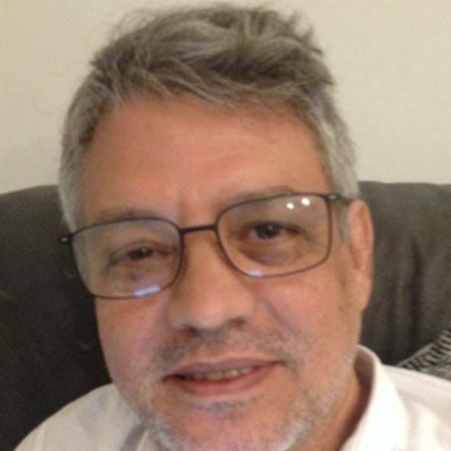
Ph.D. in Public Health. Full Professor of Philosophy and Bioethics at the Federal Rural University of Pernambuco. Vice President of the Ecovila Santuário dos Jatobás Association (AESJ). Participant in the Voices of the Ecovillage project (audiovisual memory of the ecovillage).
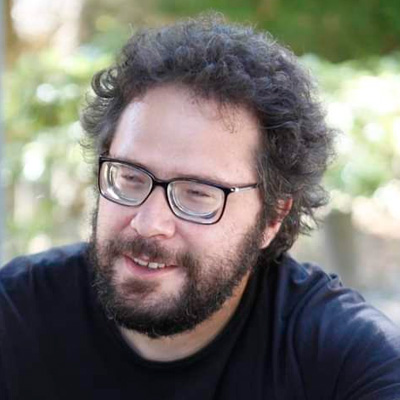
Daniel is a member of AO NORTE and holds a PhD in Anthropology – Power, Resistance and Social Movements, from the Faculty of Social and Human Sciences of Universidade Nova de Lisboa. He develops research on uses and practices of culture aimed at marginalized populations, with a special interest in its application in prison contexts. Alongside AO NORTE he has been collaborating in projects of collection, inventory and reflection around historical photographs in personal albums.
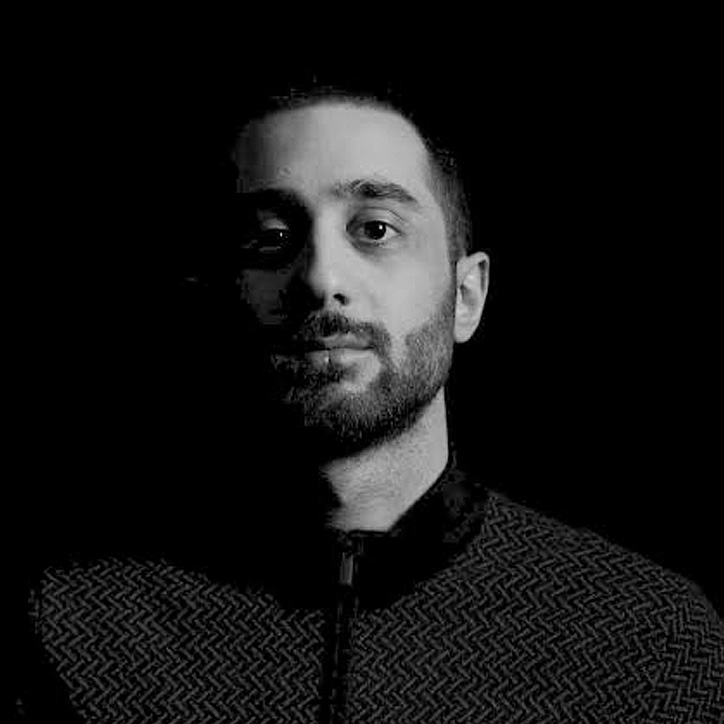
David Kvatchantiradze, is a Georgian filmmaker and cinematographer. Studied Film at Temple University (USA) and EICAR – The International Film and Television School Paris (France). Works as a cinematographer since 2018. Cinematographer of the film The Men’s Land (2025), directed by Mariam Khatchvani.
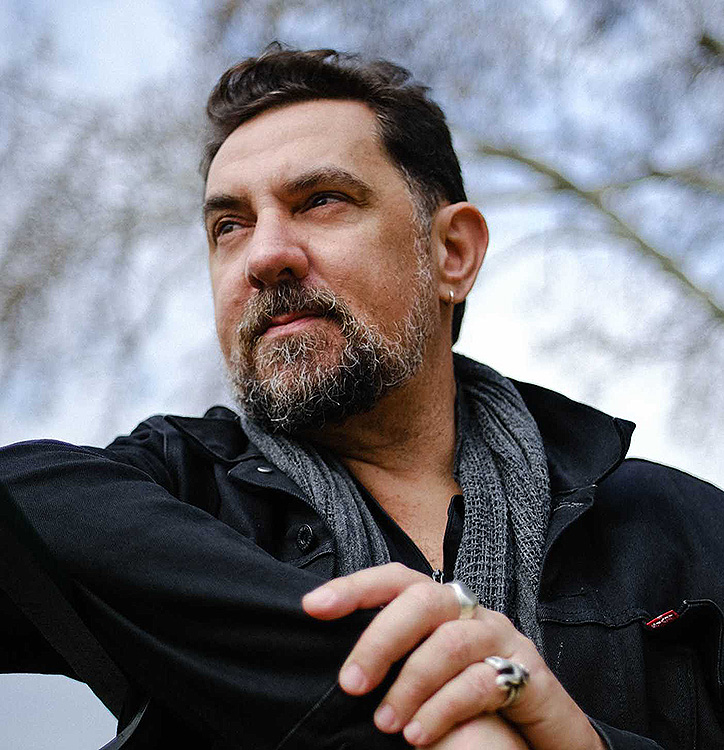
Diogo Varela Silva (b. 1971) is a film director and producer. His work has been shown and awarded at several film festivals. He is the director of the first Fado musical, a street opera entitled Alfama in B. Graduated in Cinema/Film Production from the Escola Superior de Teatro e Cinema, in Lisbon, Portugal.
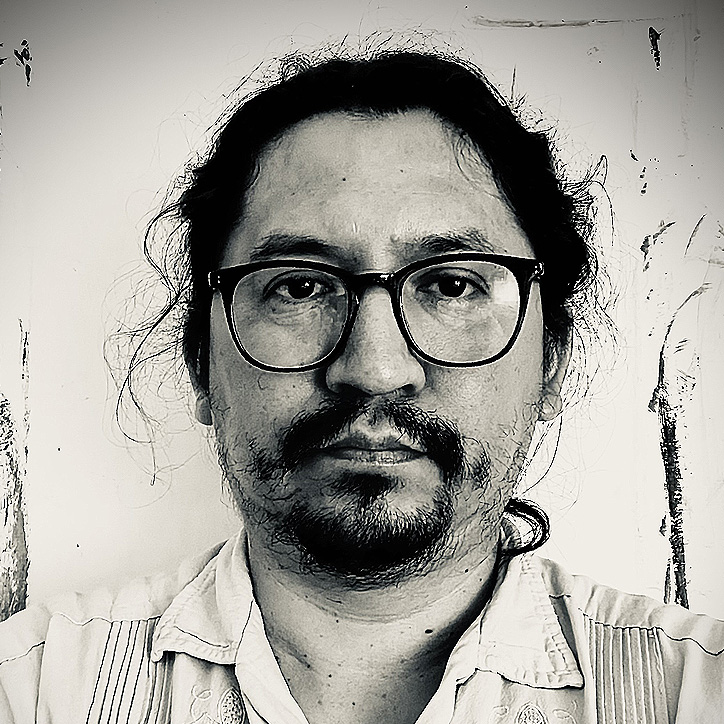
Mexican-Portuguese visual artist. Fernando’s visual and research-based work is grounded in three lines of experimentation: 1) the multiplicity of landscape representation through the interconnections of painting, drawing, printmaking, photography, graphic-pictorial installation, and expanded drawing and painting; 2) the practice of landscape through aesthetic in situ walks associated with deep ecology; 3) community-based artistic practices and informal art education aimed at holistic collective development. Fernando has participated in various artist residencies and exhibitions, both solo and group, in several countries. Since 2007, he has taught art at different academic levels. He is currently a PhD candidate in Media Arts at the Faculty of Arts and Letters of the University of Beira Interior, Portugal. He lives and works in Paúl, Covilhã.
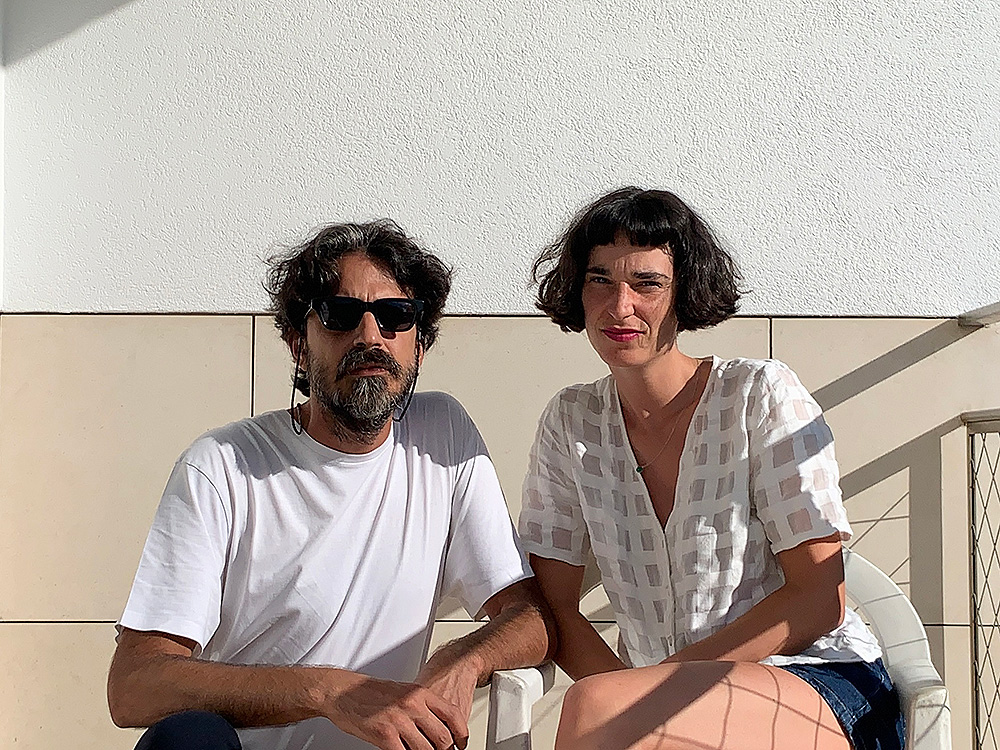
Francisco Moura Relvas is a film director, producer and visual artist. He has a degree in Sound and Image as well as a master's degree with a specialization in Television and Screenwriting, by the Portuguese Catholic University. His filmography is based on social issues, in a tragic and comic way, whether in documentary or fiction. Rita Senra is a visual artist with a degree in Fine Arts from the Faculty of Fine Arts, University of Porto. She develops her artistic artistic work in the areas of drawing and installation, with exhibitions, both solo and group, since 2014.
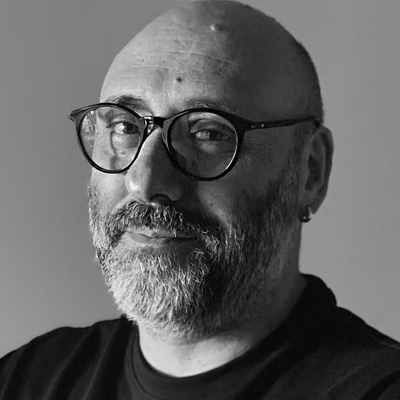
PhD in Artistic Studies, specializing in Theatre and Performance Studies, from the University of Coimbra, and Postdoctoral studies in Sociology – Sociology of Art from the Faculty of Arts at the University of Porto. He is a Visiting Lecturer at the School of Education of the Polytechnic Institute of Viana do Castelo and a Visiting Researcher at NuPAA – Center for Autobiographical Artistic Practices at the Federal University of Goiás. He has authored numerous scientific articles on topics related to the arts and visual culture, theatre and performance studies, research methodologies through artistic practice, memory studies, artistic and cultural studies, and art and technology. His artistic work has been featured in museums, concert halls, public spaces, and events across Portugal, Austria, Spain, Finland, Brazil, Mexico, and South Korea.
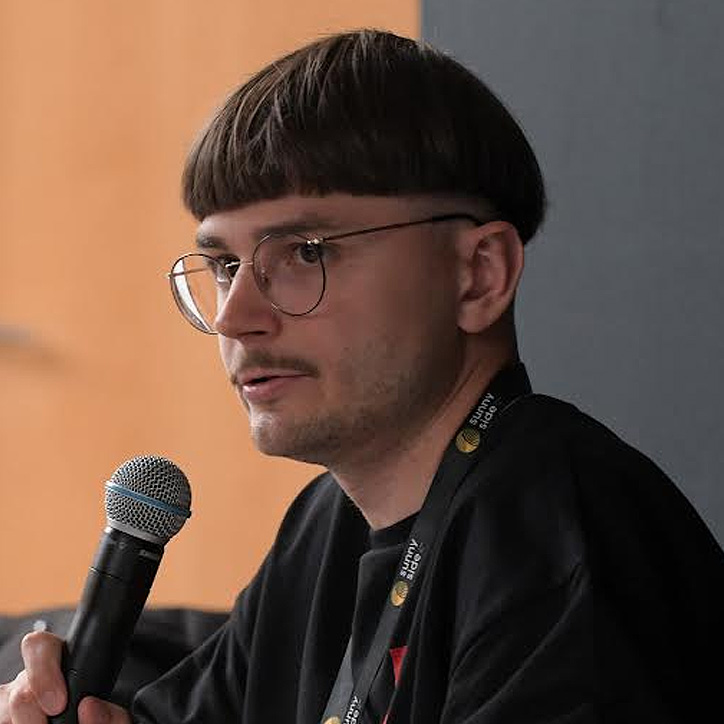
Glib Lukianets is an award-winning film producer, founder of the Gogol Foundation and its UNESCO-recognized production house, Gogol Film. An alumnus of the National Film School in Łódź and the EURODOC program, he also serves as an expert for the Ukrainian Cultural Foundation. His work has been recognized by the international documentary community, receiving multiple awards at events such as the IDFA Forum, DOK Leipzig, Molodist, Sunny Side of the Doc, and East Doc Platform.
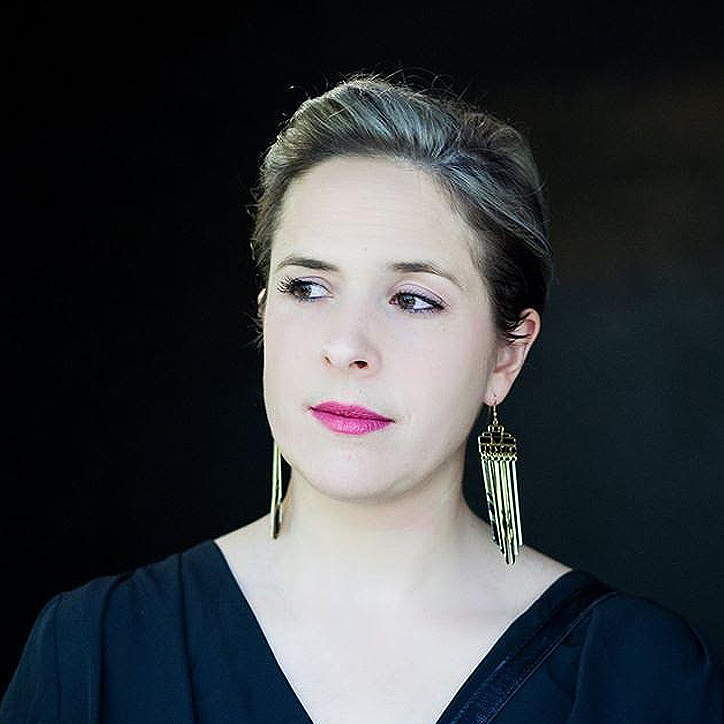
Gabriela Daniels is a Prague-based producer, production manager, and distribution expert with over a decade of experience managing production company Europe Media Nest s.r.o. which is dedicated to bringing Iranian culture to the international cinema world. She helps independent Iranian filmmakers to show authentic insight into modern-day Iran. Gabriela has collaborated with acclaimed directors such as Mohammad Rasoulof, Mahnaz Mohammadi or Pegah Ahangarani on award-winning projects including There Is No Evil (Golden Bear, Berlinale 2020) and I Am Trying to Remember (Busan Jury Award, MakeDox Special Mention 2022).
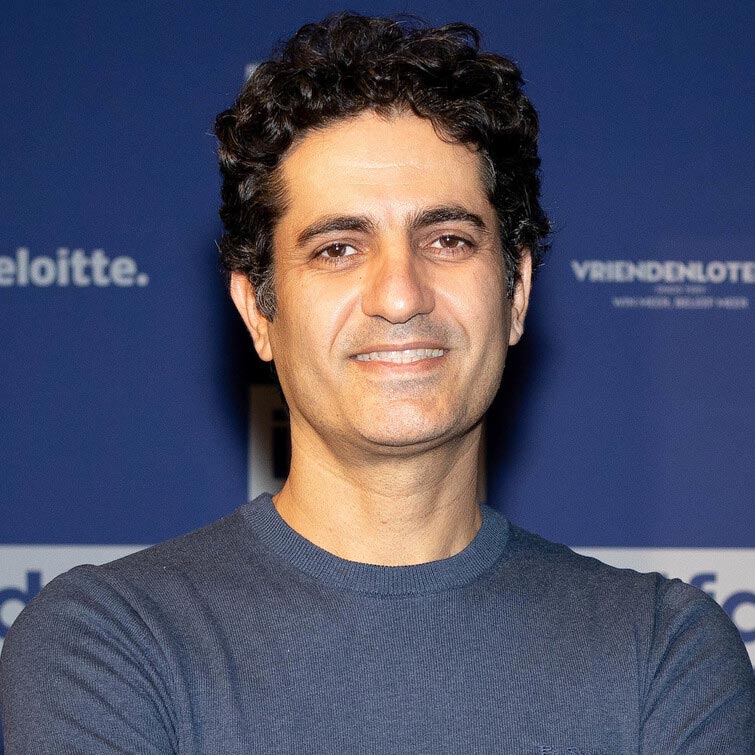
Hesam Eslami is a Tehran-based filmmaker, who has directed and produced documentaries for international TV and Cinema since 2013. His latest works focus on the margins of the Iranian society.
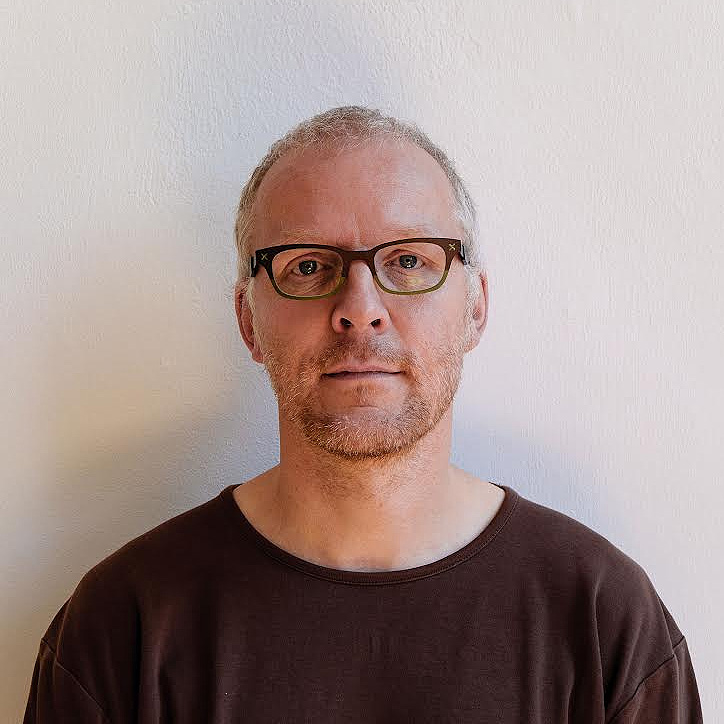
Born in 1962, he entered cinema in 1989 and founded the film club Die Linse and after 8 years he and his partner Thomas Behm took over the arthouse cinema Cinema & Kurbelkiste in Münster. After more than 20 years he went in 2019 back to volantary work for his film club. Since then he works as a freelance curator and organizer, primarily in the film and cinema sector and is member of several jurys and selection committees mainly for short-film, documentary and films for young audience.
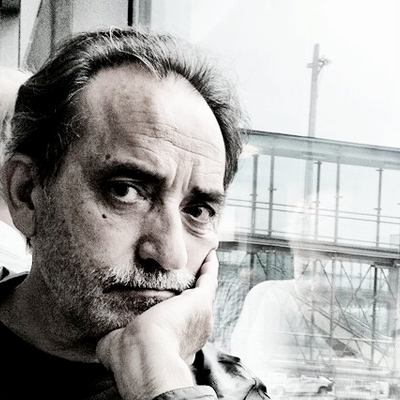
Graduate in Applied Mathematics from the University of Porto, worked as a computer technician at Caixa Geral de Depósitos. He has been dedicated to photography since adolescence, with some of his works published in books and magazines. Participated in collective exhibitions and held individual exhibitions and in co-authorship with Manuela Matos Monteiro. Among the various exhibitions produced are "Carnival in Venice", "The Harvest", "Crystalline light", "Istanbul - Roadmap of melancholy", "Tropicana / Matanzas", "South of Dakar" Istanbul and Lisbon - Roadmaps of melancholy ". Among other interventions, we should also mention his work in co-authorship on the river Douro: official photograph of the 250th anniversary of the demarcated region, an exhibition about the region in Parliament (" the Douro on the Tagus” with Siza Vieira, José Rodrigues and Gracinda Candeias), in the European Parliament / Brussels, Paris, Bordeaux, Maputo and Beira (Mozambique), in various areas of the Douro and Porto. Since October 2013, with Manuela Matos Monteiro, João has been running the galleries ESPAÇO MIRA and MIRA FORUM, in Campanhã, Porto.
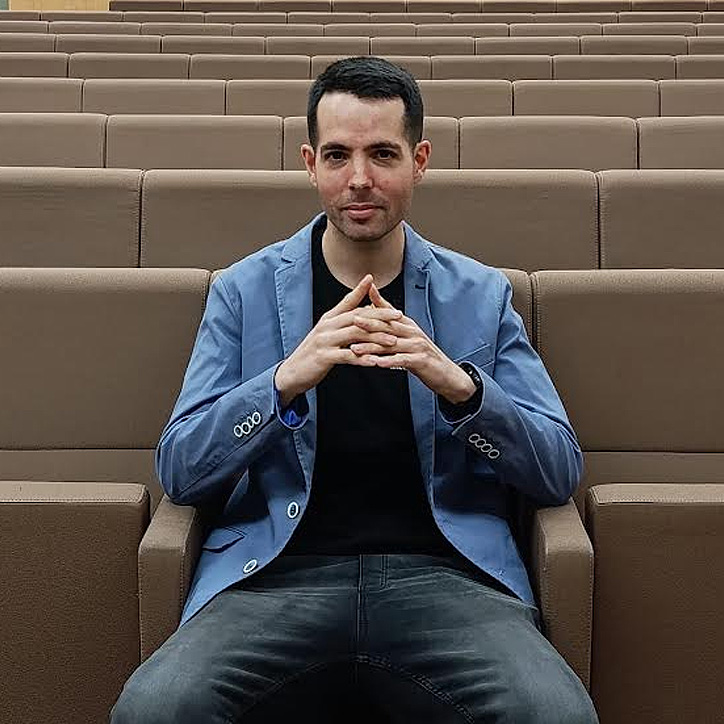
I graduated in Psychology from the Autonomous University of Barcelona and I am currently the owner of a small bookstore in my hometown, Igualada. Since I was a child, cinema has been a fundamental part of my life. I grew up watching late 90s and early 2000s films such as Matrix, The Lord of the Rings, and Gladiator. I have always particularly valued the exchange of opinions after a screening, a passion that over time has developed into a true vocation. Driven by this passion, I founded a film club in my city, wrote film reviews for a local newspaper, and collaborated on cultural radio programs where I spoke about cinema, series, and literature. Recently, I have also had the opportunity to serve as a jury member at local film festivals such as the Trets Film Festival 2025. These experiences have encouraged me to apply for the MDOC, with the aim of continuing to grow and contributing my passion for the seventh art.
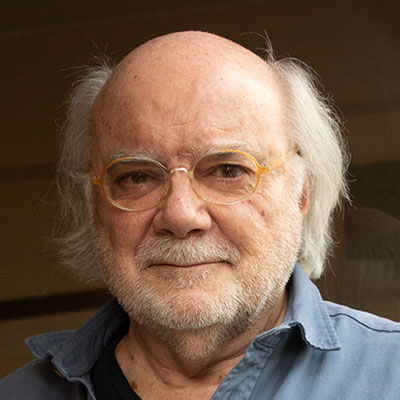
PhD in Communication Sciences from the University of Santiago de Compostela, expert in Documentary Film, professor of Higher Education, journalist, filmmaker and cultural programmer. As a journalist he worked in the Press, Radio and Television, namely for RTP, where he spent 25 years. He directed several documentaries and he was Programmer responsible for the Cinema, Audiovisual and Multimedia area of Porto 2001 – European Capital of Culture, as well as the cycle of Photography and Documentary Cinema Images of Imagined Real from the Polytechnic Institute of Porto. He is coordinator of the blog Narrativas do Real.
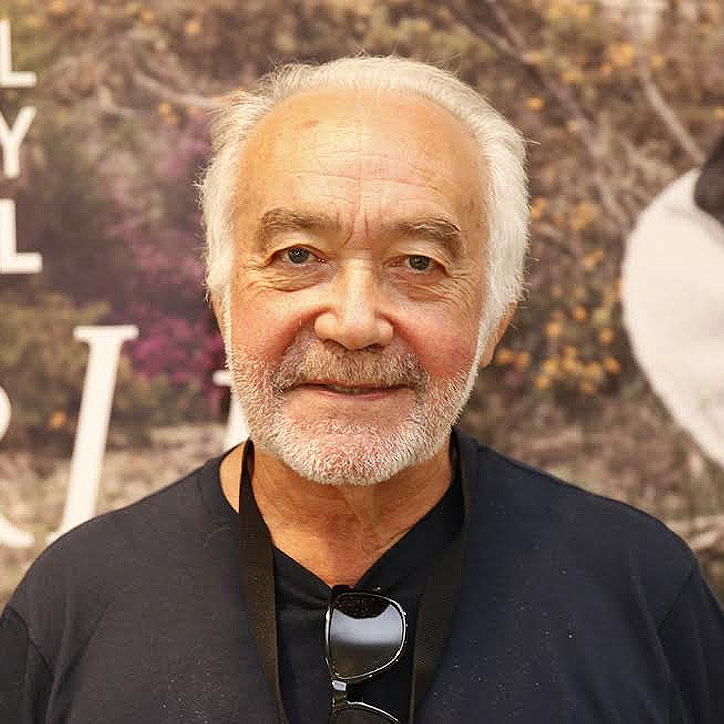
José da Silva Ribeiro holds a Bachelor's degree in Film and Video from the Escola Superior Artística do Porto, a degree in Philosophy from the University of Porto, a Master's and PhD from the Universidade Aberta, and a postdoctoral degree from the Federal University of Rio Grande do Norte. He is currently conducting research in the fields of visual anthropology, anthropology and cinema, and auto-geo-socio-biographies. He is a visiting professor at the Federal University of Pernambuco - EDUMATEC. He is also a member of AO NORTE, where he coordinates the Cinema and Digital Narratives Study Group and the "Fora de Campo" - Summer Course at MDOC – Melgaço International Documentary Film Festival. He participates in research projects in both Portugal and Brazil.
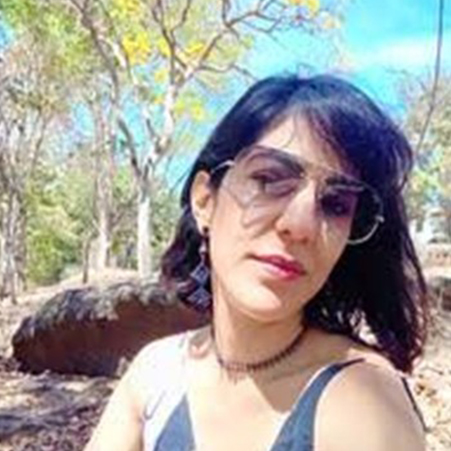
Juliana Marra is a PhD candidate in the Graduate Program in History at the Federal University of Goiás (UFG). She holds a Master's degree in Cultural Performances from UFG (2016). She has scientific and professional experience in the fields of History (Cultural, Visual, Regional, and Environmental), Arts, Audiovisual, Cultural Heritage, and History Education.
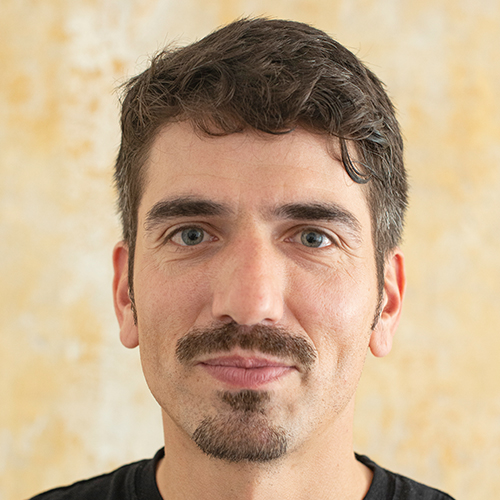
Jurek Sehrt. Curator and Head of Education at the German Cinematheque - Museum of Film and Television (Deutsche Kinemathek - Museum für Film und Fernsehen), based in Berlin/Germany. Since 2007 he is responsible for the educational programing of the Kinemathek, which focuses on film, museum as well as archive education, within the frame of German and international film heritage. Besides classical educational contexts and formats, aesthetical, inclusive and experimental approaches have become increasingly important for him. One main goal is to make cultural and film heritage accessible for everyone, while highlighting the variety and beauty of film as a free and artistic expression. Jurek – and his amazing team – put this into praxis with projects like inclusive screenings for blind and visually impaired film enthusiasts (“Ohren auf” - Open your ears!”), the participation in film education networks like “Le cinéma, cent ans de jeunesse” (CCAJ) and by exploring the educational potentials of the digital space, e.g. with the platform for young children filmspielplatz.de (“filmplayground”). Additionally, Jurek works as a consultant in the cultural sector, teaches as a university lecturer and loves spending time with his son.
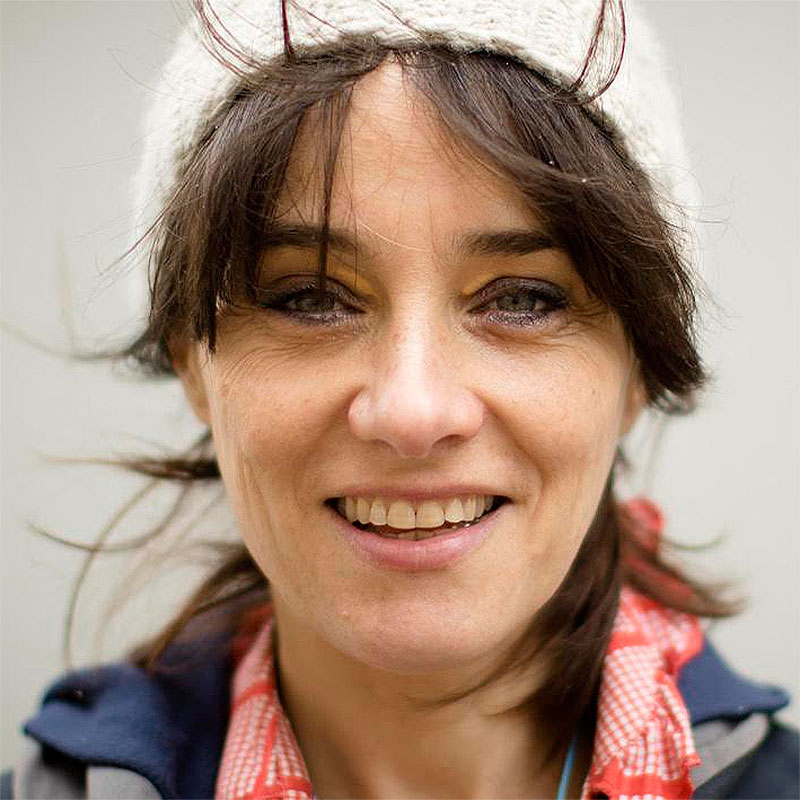
Lidija was born 1970 in Yugoslavia. She studied Yugoslav literature and Serbo-Croatian language at the University of Sarajevo and had worked on Bosnian Television starting at age of 19. She moved to the Netherlands and has been living there ever since 1993, which is a year after the war in Bosnia and Herzegovina broke out. She graduated with a Masters of Arts degree from the Film & Television Science Department at the University of Amsterdam. Starting in 1997, Lidija has worked as a researcher and subsequently as a director, script writer and producer at various television channels, including several Dutch television broadcasters (IKON mostly), in the United Kingdom for Channel 4 and BBC, as well as at the German/French ARTE channel. Lidija has had a role in numerous film selecting committees at film festivals around the world (fiction and documentary films).
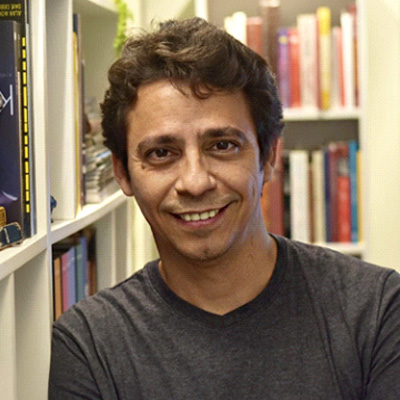
Luiz Joaquim (1970) is the author of the books Vinte e cinco: Escritos de cinema (1997-2022) (2024, CEPE); Celso Marconi: o senhor do tempo (2020, CEPE); and Cinema brasileiro nos jornaiscinemaescrito.com, created in 2007. Joaquim directed the short films Eiffel (2008) and O homem dela (2010). A journalist and master in communication, he worked as a reporter and film critic for Jornal do Commercio (Recife, 1997-2001) and Folha de Pernambuco (2004-2016). He also led the Cinema of Fundação Joaquim Nabuco from 2001 to 2017 and coordinated the Cinema and Audiovisual bachelor's program at Uniaeso (2017-2021), where he worked until 2024. He served as vice president of Abraccine (2019-2021) and, in 2021, was the head of Audiovisual, Art, and Technology for the City of Recife. In 2022, he managed the Museum of Image and Sound of Pernambuco (Mispe) and was the curator of Cinema São Luiz (Recife). Since May 2023, he has been responsible for coordinating the Cinema of Fundação Joaquim Nabuco and the Cinemateca Pernambucana Jota Soares, both under Fundaj (Recife, Brazil).
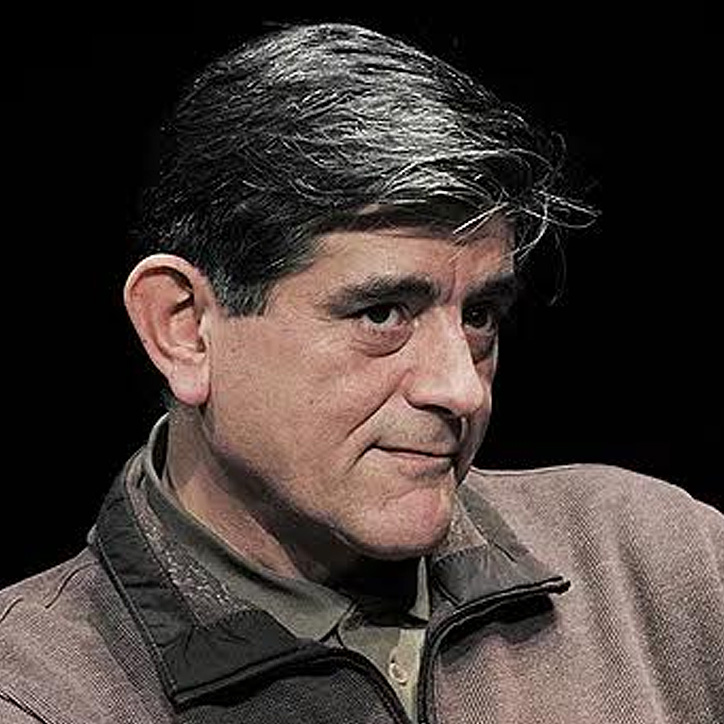
Manuel Mozos was born in Lisbon in 1959. He attended the Film course from 1981 to 1984 at the Lisbon Theatre and Film School. He worked as an editor, screenwriter, script supervisor, and assistant director. In 1989, he directed his first film. Since then, he has directed over twenty films, including fiction and documentaries, both short and feature-length. He regularly collaborates with publications, schools, institutes, universities, cultural and film associations, film clubs, and festivals. Since 2002, he has worked at the Portuguese Cinematheque as a senior technician at ANIM.
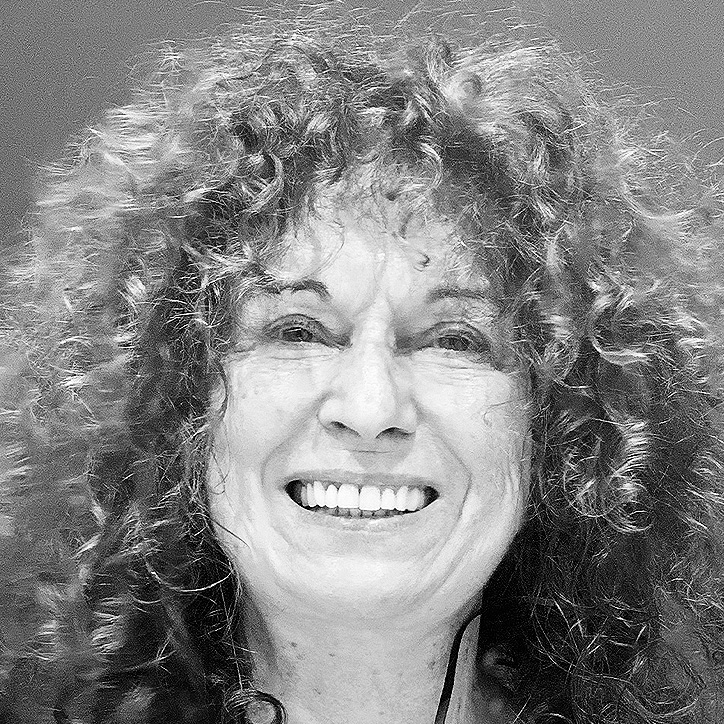
Manuela Matos Monteiro has a background in Philosophy and Psychology and is the co-author of books on Psychosociology, Psychology, as well as the author of books on Pedagogy, Project Methodology, among others (Porto Editora). She directed the magazine 2:PONTOS 1st prize in the international competition “La femme et la vigne”. Her photographs have been published in books and magazines. Among her various contributions, her work in co-authorship stands out.
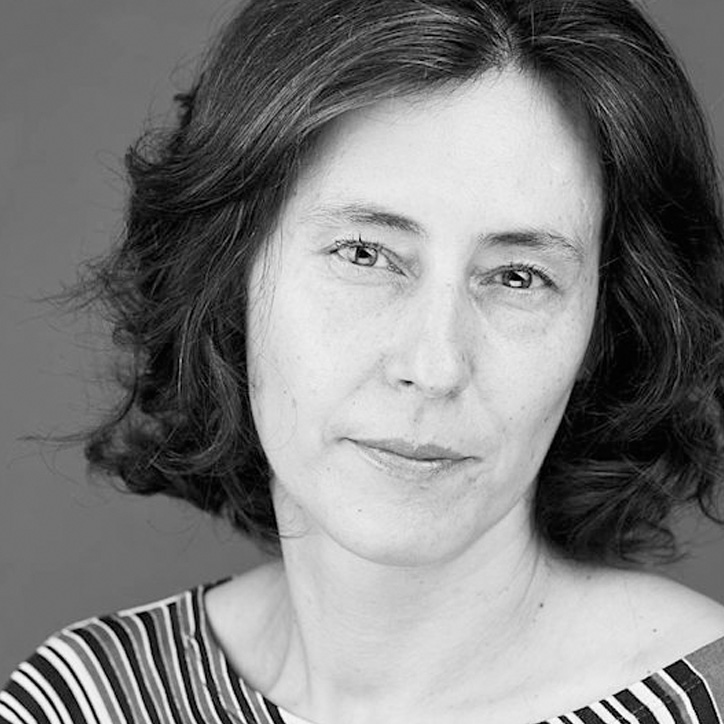
Professor in the undergraduate and master’s degree programs in Cinema at the University of Beira Interior (UBI). Member of the editorial board of journals in Portugal and Brazil, as well as a member of the scientific committee for various events. Member of the Advisory Board of AIM—Association of Moving Image Researchers—where she serves as coordinating member of the Working Group “Filmmaker Theory.” Co-editor of the journal DOC On-line ( www.doc.ubi.pt ) and researcher at iA*Research Unit in Arts, UBI.
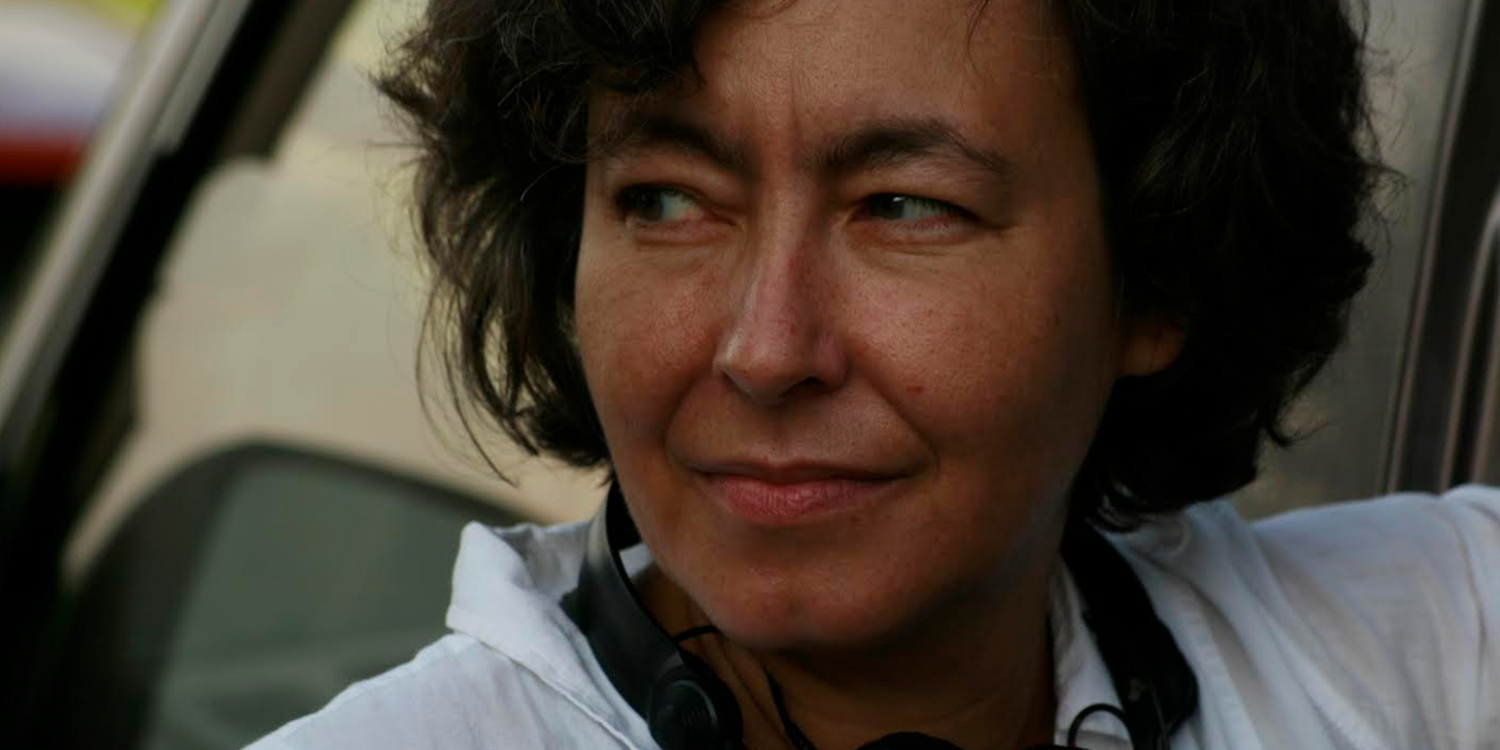
Studied Image and Audiovisual Communication at the António Arroio School of Arts in Lisbon. She worked in Portugal and France as an assistant director, script supervisor, and set photographer. In 1995, she began writing and directing her own films—documentaries and fiction—exploring subjects that intersect her personal history with significant issues in Portugal's recent history, such as the colonial war in Africa, the revolution, and the end of the colonial era. Festivals like Rotterdam, Venice, and Locarno have screened and awarded her films. She also teaches cinema at Lusófona University of Lisbon, at the international DocNomads master's program, at the School of Arts at UC Porto, and at the EICTV in Cuba. In 2015, the Department of Literary, Linguistic, and Comparative Studies at L’Orientale University in Naples created the "Margarida Cardoso Chair," a center for creative practice and research inspired by her works.
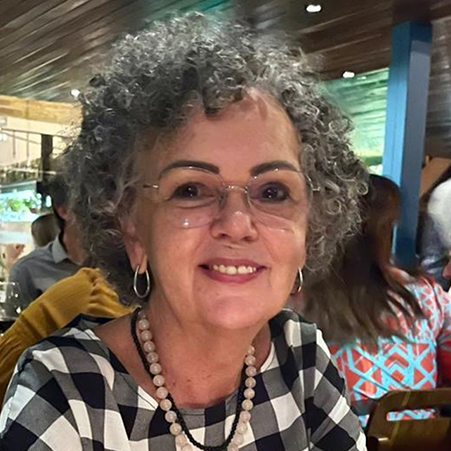
Medical doctor graduated from the Faculty of Medicine at the Federal University of Pernambuco. Preceptor for the medical residency in vascular surgery at the Hospital da Restauração. Specialization in transpersonal psychotherapy through the Brazilian Association for Research and Teaching in Transpersonal Psychology (ABRAPET). Collaborator in the education of youth and adolescents at the Irmãos Menores de Francisco de Assis Educational Center (NEIMFA) in the Coque community. Participant in the Voices of the Ecovillage project (audiovisual memory of the Ecovila Santuário dos Jatobás).
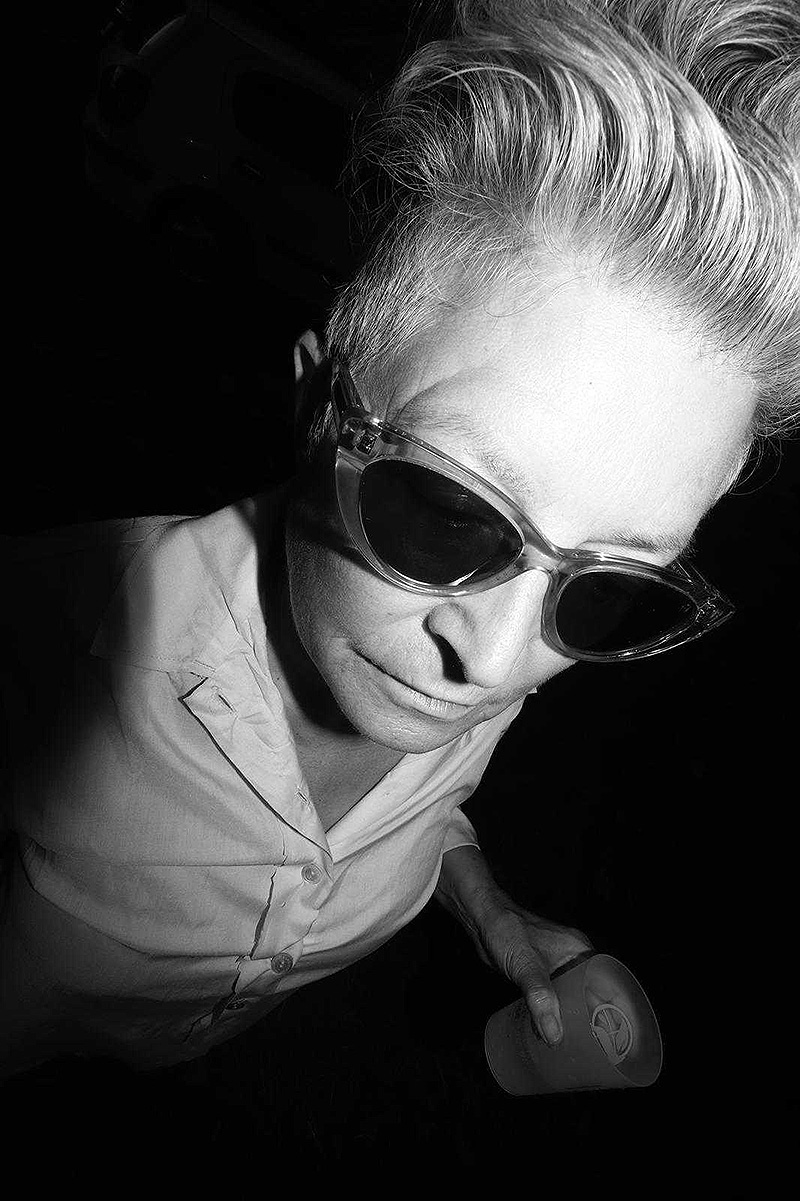
Maria Pinto was born in Portugal and went to France, Normandy, at the age of 7. She graduated in Plastic Arts from the University of Paris VIII and in Modern Literature from the University of Rouen. She has worked as a translator, art history teacher and educational adviser. In 2005, she made her first film, Explication des Salamandres, which already revealed her taste for the visual balance between fiction and documentary, and the theme of exile that runs throughout her work. Un ciel à part (A Separate Sky) in 2008 accentuates her work on Portuguese exiles and their ‘saudade’.
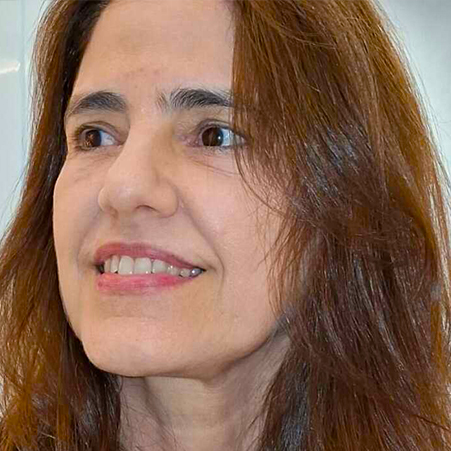
Professor at the Education Center of the Federal University of Pernambuco. Coordinator of the LEVE research group (Laboratory of Experience, Visuality, and Education). Participant in the Voices of the Ecovillage project (audiovisual memory of the ecovillage).
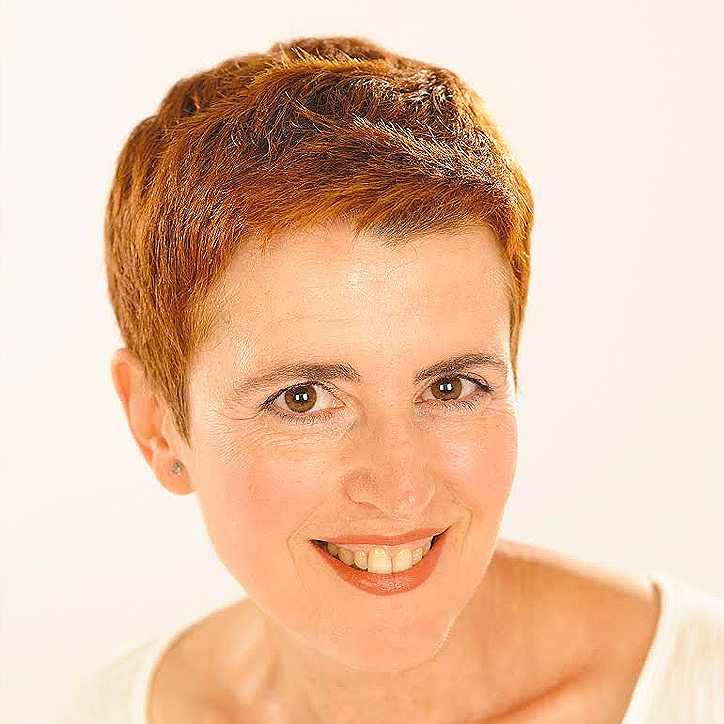
Marina Kostova is an award-winning journalist, one of the leading film critics and reporters in Republic of North Macedonia. She is a founding member and Deputy of Editor in Chief of SDK.MK digital newsroom. She is the president of the Macedonian Section of International Federation of Film Critics – FIPRESCI. She edited the books “Manchevski Monograph”, and “Rain - The World About Milcho Manchevski’s Before the Rain”, as well as the CD-ROM “Macedonia in the New York Times Archives”, and published a hybrid collection of short stories “Language is a Strange Beast”. She worked on research in films as well. She is a member of the team authoring the first online Media Literacy Dictionary in North Macedonia. She participated in FIPRESCI critic’s juries at number of film festivals (Venice, Sarajevo, Istanbul, Thessaloniki, Viennale, Oberhausen, Chemnitz, Mannheim, Cluj-Napoca, Luxembourg among others).
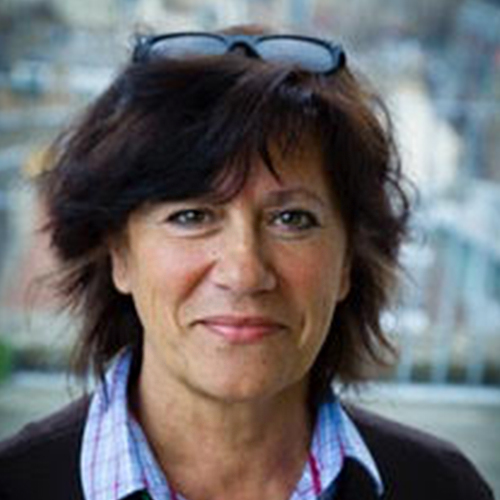
Noé Mendelle is a professor emeritus in Film Documentary at University of Edinburgh. In 2003, she set up and ran the Scottish Documentary Institute based in Edinburgh and created several schemes to develop creative documentaries in Scotland such as Bridging the Gap, This is Scotland, Right Here and Edinburgh Pitch to connect Scotland with the International Documentary Network. In collaboration with the British Council she runs a series of international workshops in Asia, Africa and the MENA region called Stories, producing short documentaries. She is an experienced international documentary director/producer having worked on numerous award-winning films for festivals (IDFA/Cannes/Berlin...) and broadcasts (Ch4, BBC, Arte, RTP, POV, RTBF...). Her latest film being Fanado (2024) shot in the Bijagos. She acts as executive producer on SDI award-winning features: “A cat called DOM” (EIFF 2022) “Freedom Fields” (2018 TIFF/IDFA), “Becoming Animal” (2018 CPH Dox/IDFA) “Time Trial” (2017 IDFA) “Donkeyote” ARTE/ZDF (2017 Rotterdam) and many more. In 2019, she was made a member of the Academy for the Documentary section.
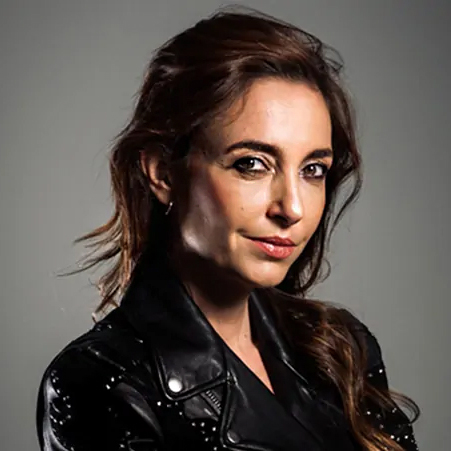
Born in Madrid in 1983, she has written, directed and produced more than thirty feature films and non-fiction series for stations such as ARTE, France 3, RTVE and Al Jazeera, among others. She specializes in the Arab world and often focuses on reflecting complex social realities in her work.
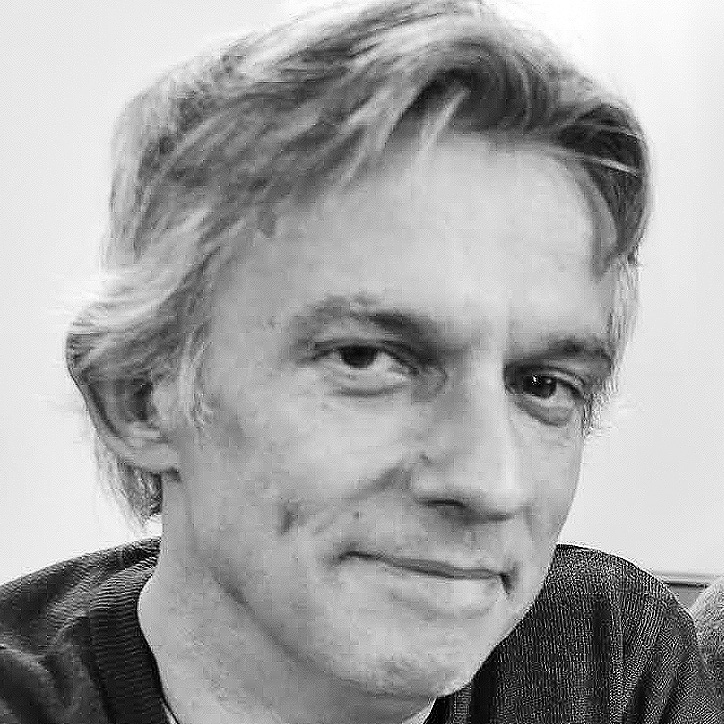
Paulo Portugal is a PhD researcher at Nova University – School of Social Sciences and Humanities (FCSH), in the Artistic Studies – Art and Mediations program, focusing on new cinephilia. He has been a freelance film journalist for over three decades, covering numerous international festivals such as Cannes, Berlin, Venice, London, Locarno, Toronto, and Rio de Janeiro, among others. He has written for various publications, including Capital, Jornal de Letras, Correio da Manhã, Premiere, GQ, and Metro International. In this capacity, he has served on several international juries, such as Abracine (Rio and Pernambuco) and for FIPRESCI in Cannes, Berlin, Venice, Miami, Yerevan, and Zanzibar. He is the founder and director of the association Somos Humanos, which promotes cinema and human rights.
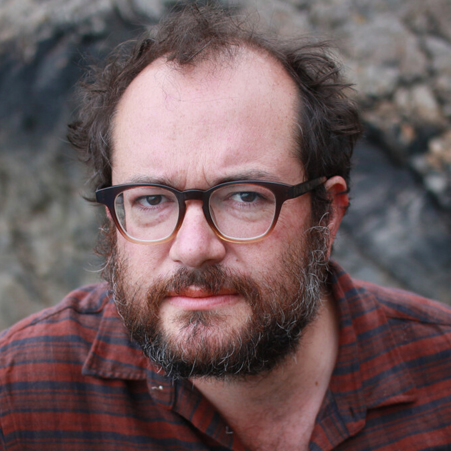
Raúl Alaejos is a visual artist and filmmaker. His artistic career is situated in the territory of film essays and non-fiction. He co-directs Serrucho.org, an experimental theater company whose pieces have been featured at Teatros del Canal during the Festival de Otoño in Madrid, the TNT Festival, and the Citemor Festival in Portugal. He has been part of the “Nuevos Comanditarios” program by the Carasso Foundation and the Fondation de France, and he is a member of the experimental television collective Neokinok. His work has been recognized at Documenta Madrid, the Videocreation Festival of Navarra, MajorDocs, and the UrbanTV Festival at La Casa Encendida in Madrid. He received the Leonardo Research Grant from the BBVA Foundation, which supported the creation of his latest film, “Objecto de Estudio”. www.raulalaejos.com
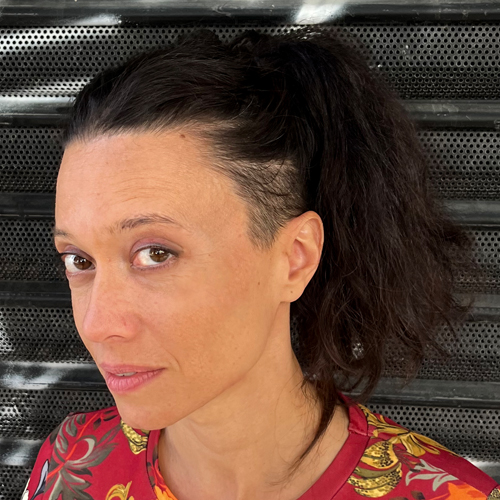
Renata Ferraz has a master's degree in Multimedia Art and a PhD in Performing Arts and Moving Image from the University of Lisbon. Considering theory and practice as equivalent in the processes of creation and research in cinema, he explores territories where his films and texts take shape. Produces films, multimedia works and shared creation projects. Her work involves making films featuring cis women, trans women, non-binary people and other living beings other than humans. Rua dos Anjos, his first feature film, won awards at the Ann Arbor Film Festival (2022) and Queer Porto (2023), in addition to having participated in numerous international festivals and having its commercial premiere in 2023. He currently coordinates AFECTA (Shared Creation Laboratory) at FAL (UBI), in partnership with FBAUL (ULisboa) while developing his next feature film.
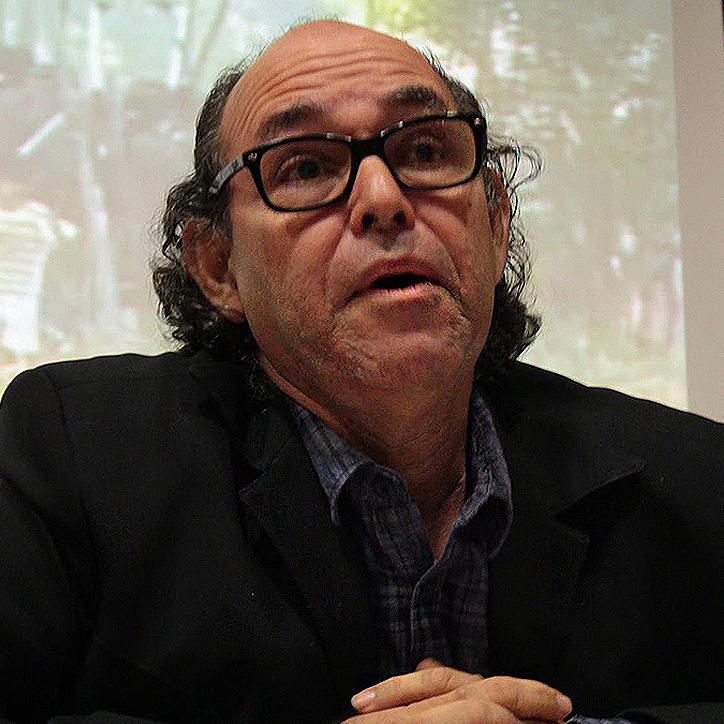
Coordinator of the Center for Studies and Research on Ethnicity (NEPE) at UFPE, he is an Associate Professor II in the Graduate Program in Anthropology at UFPE. He also teaches in the Inter-University Master’s Program in Ibero-American Anthropology at the University of Salamanca, Spain. He has expertise in Anthropology, with an emphasis on Indigenous Ethnology, focusing on topics such as Indigenous health and visual anthropology, conducting research projects with Indigenous peoples in Pernambuco and the Upper Rio Negro in the Amazon, specifically among the Hupdah of the Nadahup linguistic family and the Pankararu people. He is a member of the Visual Anthropology Laboratory of the Image, Sound & Human Sciences Center at UFPE and a member of the Board of Trustees of the Pernambuco State Museum. He served as the national coordinator of the Visual Anthropology Working Group of the Brazilian Anthropology Association (ABA). He has held several leadership positions, including Director of the National Association of Graduate Studies in Social Sciences (ANPOCS) and General Coordinator of Museums at the Joaquim Nabuco Foundation in Recife until January 2014. He was the General Secretary of the Brazilian Anthropology Association during the 2013/2014 term and currently serves as Vice-Coordinator of the Museums and Cultural Heritage Commission of the International Union of Anthropological and Ethnological Sciences.
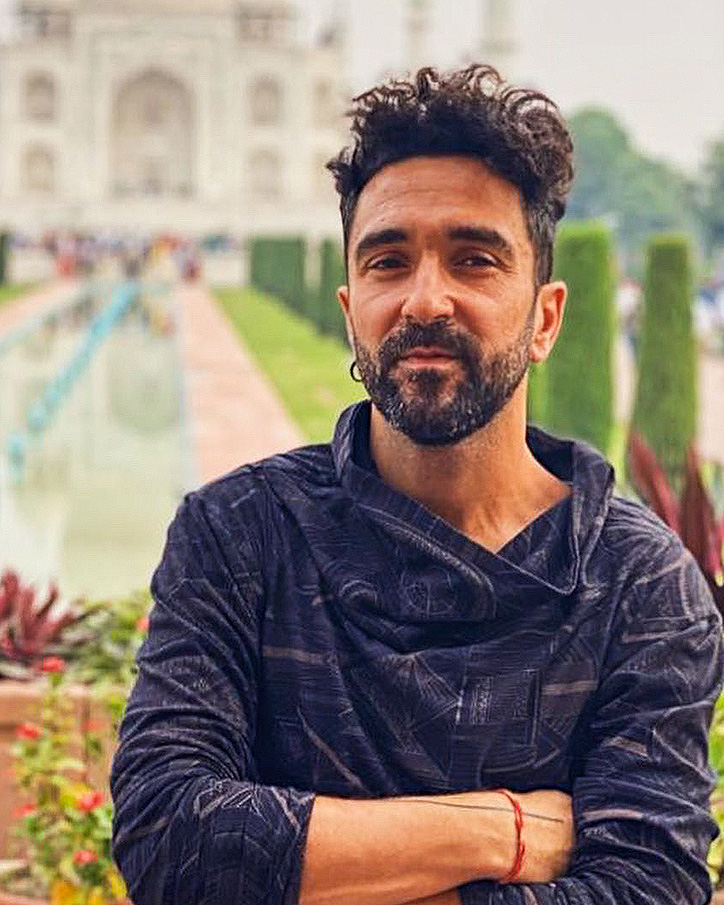
Rui Pedro Lamy, is a Portuguese director and producer. Currently focused on film and documentary photography, he has been forging connections between science, history, technology and the audiovisual languages.
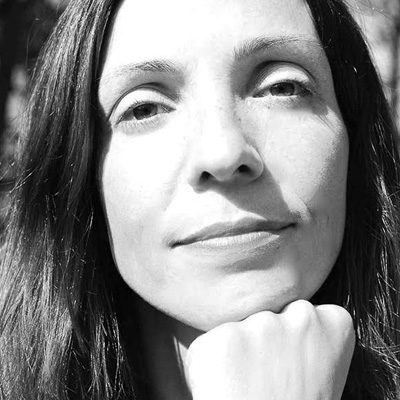
Filmmaker, producer, and cinema programmer, Sandra has been dedicated to documentary cinema for over 20 years. She studied political science in Toulouse and journalism in Madrid, and graduated in cinema. In 2004, she co-directed and co-produced the feature documentary 200 KM, which premiered at the San Sebastián Film Festival. Since then, she has worked as a producer in cinema and audiovisual projects. She has directed short films such as Haciendo Memoria, A través de sus ojos, and La iniciación, among others. At the end of 2022, she premiered her two latest works: the feature documentary Archipiélago, which she co-directed and co-produced, and the short film Lo que no fue, which participated in numerous national and international festivals and won the Audience Award at the Alcances Festival. She is the president of the DOCMA Association.
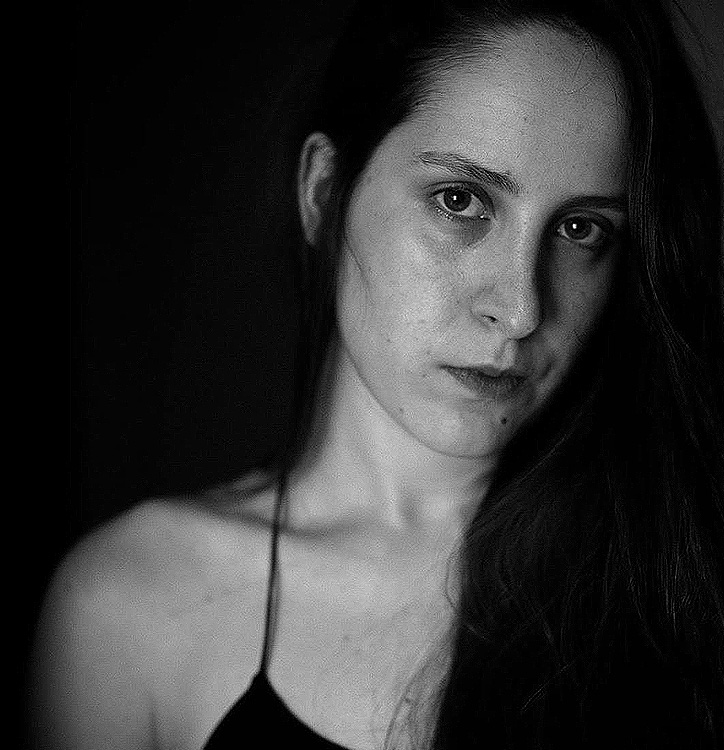
Sara N. Santos (1992) is a portuguese filmmaker. She earned a degree in Documentary Cinema from ESTA-IPT in 2013 and completed a Master's in Audiovisual Communication at ESMAD-IPP in 2018. Her films explore themes such as Memory, Archive, and Fiction. SABA (2014) won the PrimeirOlhar award at Encontros de Cinema de Viana. Just Like the Films (2020) was screened at various national and international festivals and won Best Student Experimental Short Film at Porto Femme. In addition to directing, she also works in film editing, with credits including To Sea the Sea (2018), Home Sweet School (2019), The Sand Spell (2024), among others. She has been teaching at ESMAD | P.PORTO since 2023.
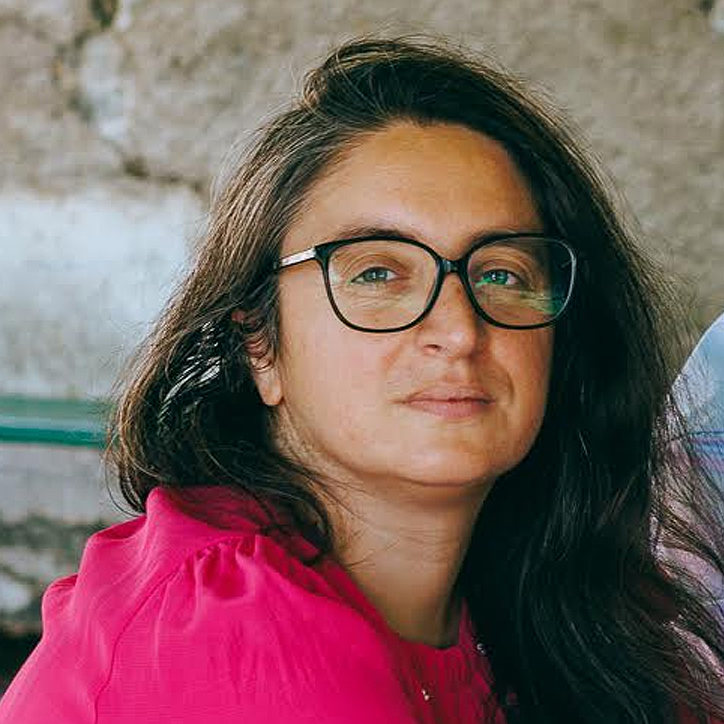
Teresa Vena studied history, art history and Spanish philology in Geneva. She has worked in Switzerland and Berlin in various contemporary art galleries and art historical institutions. She works as a project manager in the cultural sector and as a curator for art and film. In Berlin, she founded several film festivals such as Film:Schweiz and Prachtige Films! and also works as a cultural journalist. Since the end of 2022, she has been co- editor-in-chief of the Swiss film magazine Cinébulletin, alongside being a freelance journalist. As a member of the international film critics’ association FIPRESCI, Vena has served on various festival juries, including the Berlinale, the Mar del Plata International Film Festival, Locarno Filmfestival, Toronto and the Istanbul Documentary Days. Her main interests are films from Asia, Latin America and Europe.